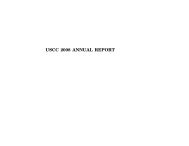e-commerce@its.best.uk - Fatal System Error
e-commerce@its.best.uk - Fatal System Error
e-commerce@its.best.uk - Fatal System Error
- No tags were found...
You also want an ePaper? Increase the reach of your titles
YUMPU automatically turns print PDFs into web optimized ePapers that Google loves.
1.10 To achieve this vision, the UK mustovercome the triple challenges depicted inthe 'pillars' of:Understanding - getting business,individuals and Government to appreciatein a timely way the opportunities availableand the actions to be taken;Access - giving businesses, individuals andGovernment access to all the elementsrequired for full participation in theInformation Age; andTrust - getting business, individuals andGovernment to accept the new tools of e-commerce and new styles of doingbusiness.1.11 As a 'foundation' for this vision, the UKwill have reinforced its commitment to openand competitive markets, striking a delicatebalance between a necessary degree of 'lighttouch' regulation and freedom to innovate. Itwill have demonstrated the power of industryself-regulation - backed by Government. Itwill have led the successful internationalresolution of key tax and regulatory issues. Itwill have put in place the mechanisms to coordinateindustry and Government actionsinto a single drive for success and the meansto measure and track that success.1.12 As a result, the UK will have achievedthe goal of becoming the <strong>best</strong> environmentin the world for e-commerce. Key indicatorsof success will be that, by 2002:For individuals:a higher percentage of people in the UKwill have access to e-commerce networksfrom home than in any other G7 country;total cost of Internet access will be lower inthe UK than in any other G7 country; anda higher percentage of the population willuse multi-function smartcards than in anyother G7 country.For business: a higher percentage ofbusiness-to-business and business-toconsumertransactions will be carried out one-commerce networks than in any other G7country.For Government: a higher percentage oftotal Government services may be transactedthrough e-commerce networks than in anyother G7 country.The barriers1.13 This report identifies the key barriers as:Foundations: the lack of a clear,internationally agreed, regulatoryframework and of clarity in some areas oftax policy. The sheer speed of developmentof e-commerce, within a competitive andinnovative environment that is rapidlychanging, has outstripped the normalinternational processes, despite significantleadership already shown by the UK.Understanding: at the heart of thechallenge of limited adoption is lowunderstanding of the potential benefits andchallenges at all levels. These range fromthe impact on company profitability to theability to create entirely new services andforms of market. Many small companies,for whom day-to-day survival is challengeenough, have little time or inclination toaddress issues that seem complex,technical and irrelevant. Many largercompanies appear 'frozen in the headlights'- aware of the likely impact, yet paralysedby the potential for reduced margins andunwilling to address a majortransformation of business practice. Thereare serious skill shortages, both in technicalareas and in the management of change inboth private and public sectors.Government is not fulfilling its potentialvital role as both purchaser and exemplar.Many individuals do not yet appreciate thescope for cost savings and improvementsin quality of life possible with e-commerce.Access: the challenges of access are multilayered,just like a Russian doll: when one issolved (and the doll opened) there is afurther one inside. The first challenge isaccess to communications and computingtechnology. Much has already beenachieved: by competition driving downpersonal computer and software prices; byOftel's 'Access to Bandwidth' plans to openthe BT local access system to competitiveuse with new technologies; by accesscentre initiatives from DTI, DfEE, Treasuryand DCMS; and through innovativecommunity programmes such as the BBC's'Web Wise'. However the challenge remainsof delivering local telecommunicationsaccess competition for new, high quality,high-bandwidth services and of fundingsuccessful local access centres in the longterm for those who cannot afford, or chosenot to have, access from home. The nextchallenge is access to electronic paymentE-<strong>commerce@its</strong>.<strong>best</strong>.<strong>uk</strong>3















